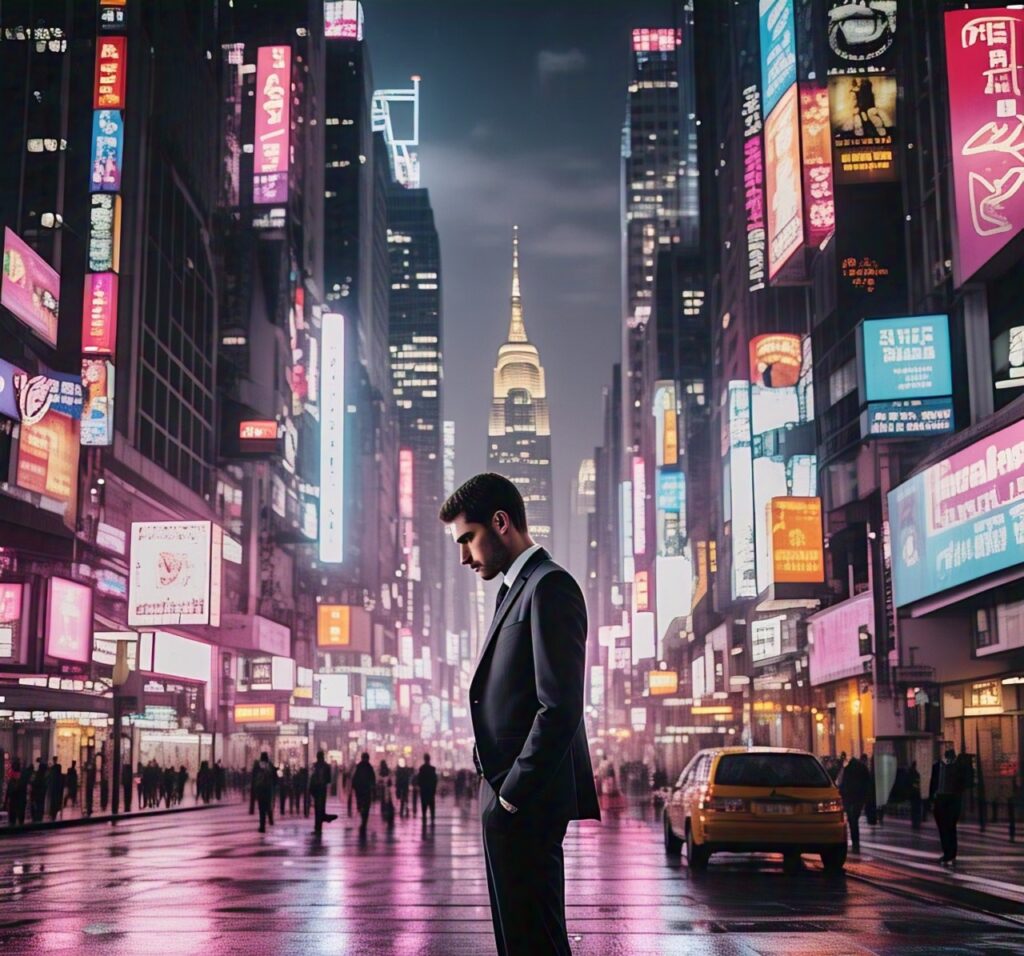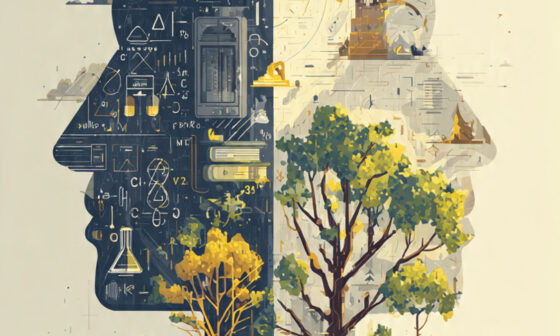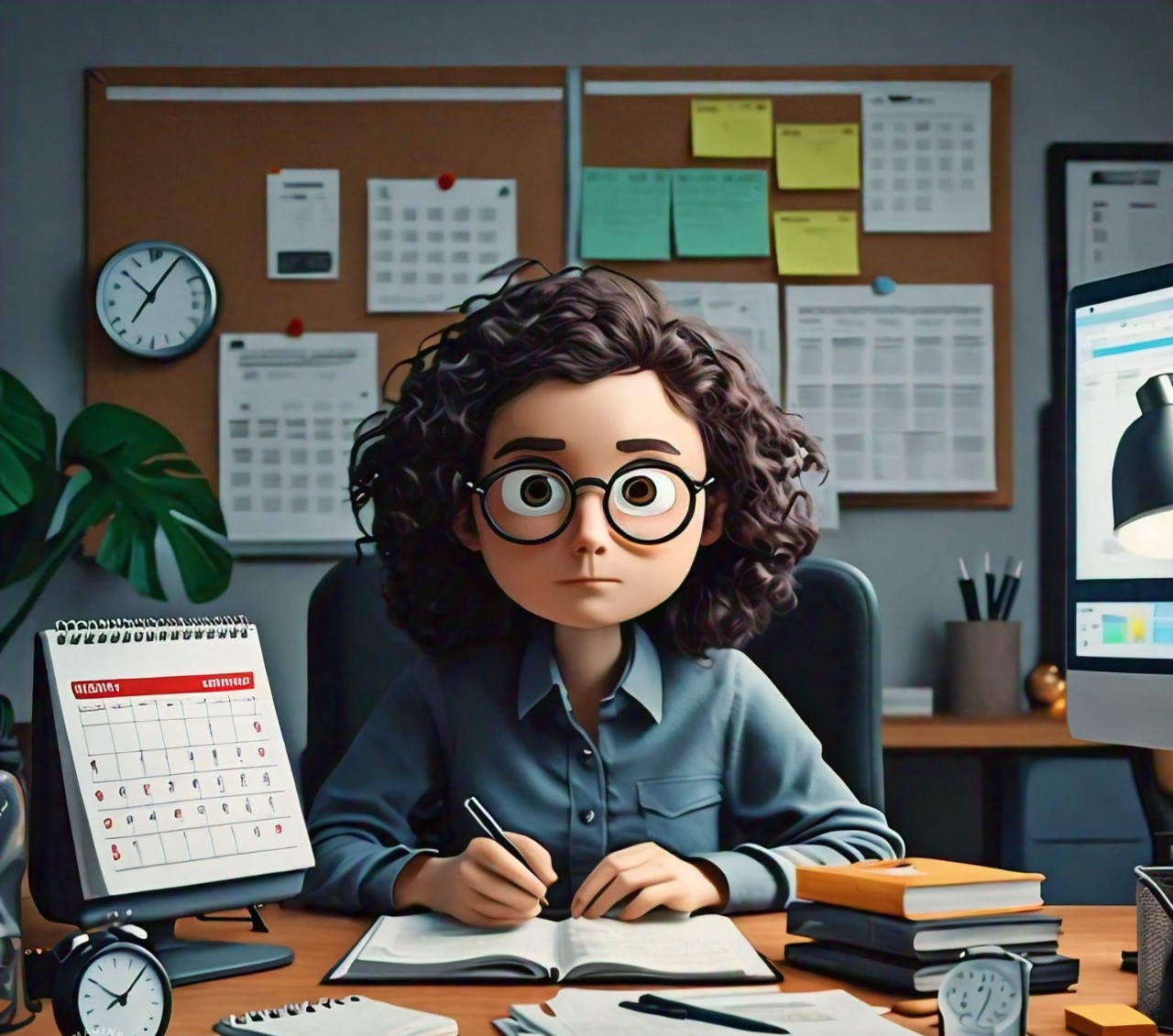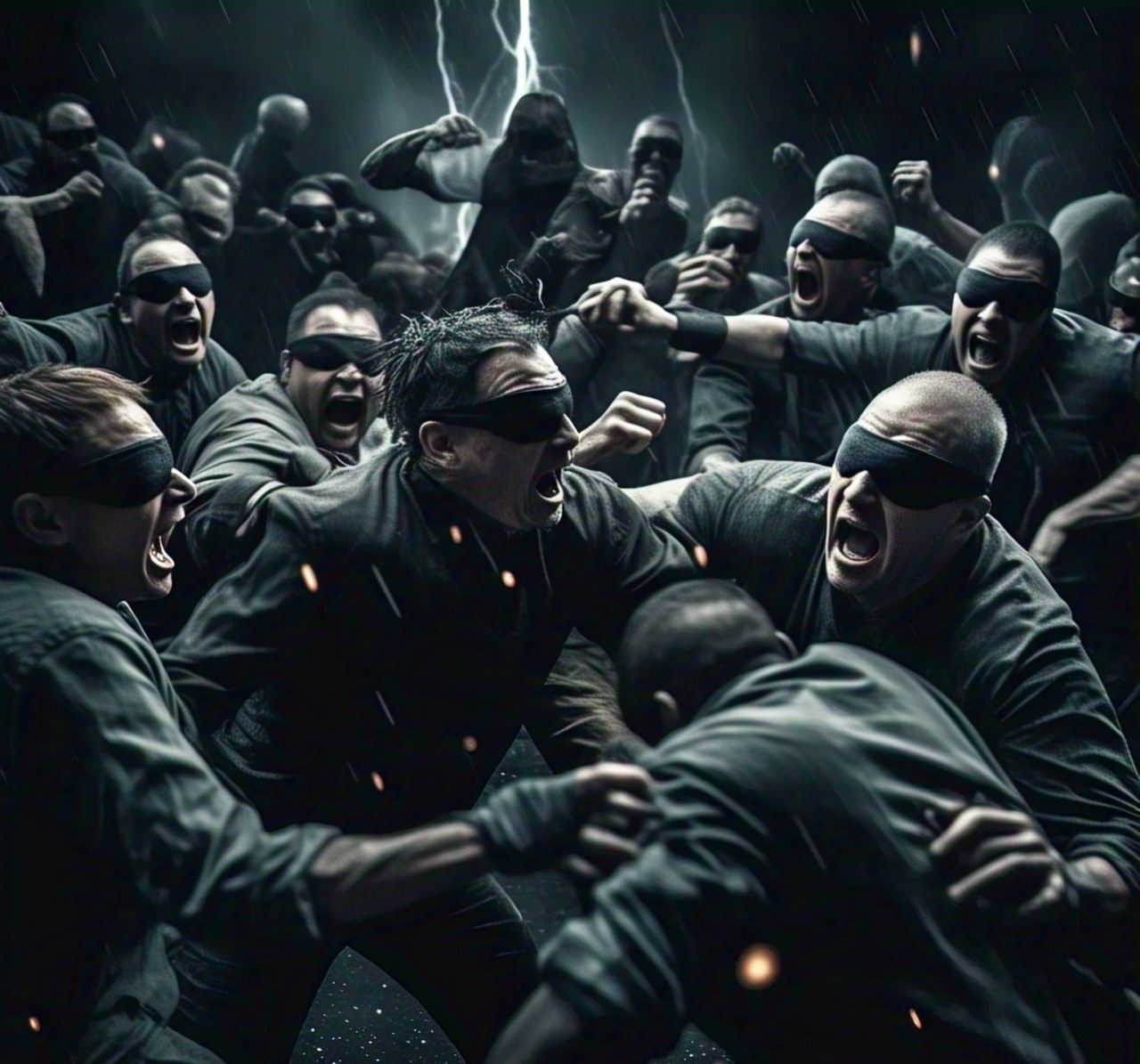Take a moment to look around you, soak it all in, open your eyes to see and realize that we live in an age of unprecedented freedom. With a world of choices at our fingertips from career paths and lifestyles to identities and beliefs, we’ve been handed the keys to our own destiny, but the thing is with this freedom can come a cost: anxiety.
Anxiety, because the more possibilities we face, the harder it can become to choose, and in the wind of “what if(s)” and “could be(s),” we often find ourselves dizzy, uncertain, and overwhelmed.
The philosopher Søren Kierkegaard called this the dizziness of freedom, a profound inner tension born not from a lack of options, but from the overwhelming presence of options. Yet, he also believed that it’s in this very anxiety that we come face to face with our truest selves, and that it is what I want us to talk about.
And so I want you to walk with me or better still, let sit on a bench in the park, just me and you, I can already picture that too, Lol, and I hope you have the picture in your head, while we explore how freedom and anxiety can feel inseparably linked, and why this tension is central to the human experience, and how embracing it can lead to a more authentic, meaningful life.
The Paradox of Possibility
Kierkegaard observed that true freedom doesn’t feel light and necessarily liberating, it feels like dizziness. When faced with the vast possibilities that freedom opens up, we are often left spinning. And why is this? Because every choice we make excludes countless others, every decision, no matter how small, closes a door to an alternate path we’ll never know.
In this vast world of possibilities, with endless choices, what to do, who to be, where to go, and how to live. On the surface, this abundance seems like a gift, because freedom, after all, is rooted in having options, right? But as Søren Kierkegaard, existentialist philosopher and master of psychological insight, suggested, too much possibility can be just as paralyzing as too little.

In the dizziness of freedom, we find the anxiety of choice, but it’s in this anxiety that we discover our true selves.
Soren Kierkegaard
Kierkegaard didn’t see anxiety as something purely negative. In fact, he saw it as essential to growth, because to him, anxiety is not a flaw in the human spirit, it is the very condition of becoming human.
It arises when we confront our own potential, and it is in those moments when we realize we are not fixed beings, but open-ended projects, that this anxiety creeps in, but this discomfort is not a dead end; it’s a signal because it tells us we’re standing on the edge of transformation, and this is where the paradox of possibility comes in.
This is the Paradox of Possibility: the more options we have, the harder it becomes to choose and the more anxious we feel about getting it “right.”
As we have already from the beginning of this article, we pictured ourselves in a park, let’s take it one step further, imagine yourself standing at the center of a vast open field, with infinite paths stretching in every direction. At first, it’s exciting, right? You can go anywhere, but soon, a quiet panic creeps in. If you choose one path, you’re abandoning all the others. What if you choose wrong? What if the best path is the one you never explore? These types of thoughts can start building up.
This is the psychological burden of possibility because now, freedom, rather than feeling like lightness, begins to feel like weight.
Again, Kierkegaard described this sensation as “the dizziness of freedom.” With every new option comes a new responsibility and a new risk.
But for some of us, we have been trained to believe there is a perfect option out there; the perfect job; the perfect partner; the perfect city; the perfect lifestyle, but, this obsession with optimization for the very very best can become suffocating, because instead of empowering us to act, it traps us in cycles of hesitation, comparison, and regret. We delay decisions, fearing we’ll miss out on something better, we look sideways constantly, comparing our path to those of others, we second-guess ourselves, even after we’ve chosen. And in so doing, in trying to maximize our potential, we often minimize our peace and presence.
Have you ever been to an establishment and lost it because there was such a wide variety? Or what about the other way around? If you’ve ever entered a restaurant, looked at the menu, and then thought to yourself, “Wow, this will be a lot more difficult than I expected,” you’re not the only one. According to cognitive psychology, the sheer number of options appears overwhelming. One of the fundamental guidelines to keep at the forefront of your mind when it comes to marketing and advertising is the illusion that there is a choice.
For years, cognitive psychologists have recognized that humans don’t enjoy the prospect of having too many options with very little distinction between them. Numerous choices can result in anxiety, confusion, and sometimes even unhappiness.
A false sense of freedom is a psychological bias that leads people to believe that they can make better choices than they really do or believe that other people’s choices do not influence their choices.
The reality is that it’s more complex. The illusion of freedom creates an illusion of control, resulting in poor decision-making. What, then, and how can you choose?
Continue Reading: The Illusion Of Choice And How It Affects You
When Possibility Becomes Paralysis
This paradox intensifies in today’s world of constant information and social media. We are exposed to other people’s lives in snapshots, making their realities and possibilities look more appealing than our own. We then start to believe we’re always one decision away from a better life, but again, again and again we seem to NOT be able to never quite figure out which decision that is.
Psychologists call this choice overload or analysis paralysis when the sheer volume of options makes us less satisfied with whatever we pick, and sometimes incapable of picking at all, and instead of moving forward, we freeze, instead of committing, we drift.
Analysis paralysis is a sly productivity killer. Starting from the moment you awake at dawn, you’re confronted with many decisions. In reality, people make about 35,000 choices per day! Certain decisions could be just as easy as deciding which outfit you wear to work, whereas others are more complex, like whether or not to pursue an opportunity for a new career.
While it’s recommended to be mindful in your decision-making process, there are instances that you can go beyond thinking to confusion and overwhelming. This can be described as analysis paralysis.
Analysis paralysis, also referred to as “paralysis by analysis,” is the condition of overthinking or analyzing all circumstances to the point that a decision is delayed or is never made and then impedes the outcome, as Barry Schwartz called this the paradox of decision making.
Continue Reading: Analysis Paralysis, How it Kills Productivity, And How To Overcome It
Ironically, it’s often by setting boundaries, creating a limit to our freedom, that we really begin to feel free. When we accept that we can’t live every possible life, we start to truly live our own, for the Christian we call this; bringing our freedom and will under the authority of Christ, in order to live in His perfect will for us, this is a form of commitment.
Commitment once viewed as limitation or boundary can be a form of liberation, when we choose a path and embrace it fully, we are no longer haunted by all the others, we become present, at peace and we are grounded, we are living, because true freedom is NOT about having infinite options; it’s about having the clarity and courage to say: This is the life I will build, walking in that path.
Every possibility we let go of opens space for deeper meaning into the one we choose to choose to build. Instead of trying to have it all, we can aim to have what matters, we can shift from fear of missing out to trust in our ability to create meaning from the choices we make.
This is the way through the paradox: not by avoiding choices, but by making them with intention and learning to live with the uncertainty they bring. Yes, I know most of us if not all of us want to be perfect, so living this way, we strive towards perfection without actually being trapped by the thoughts, ideas and concept of perfection, so this brings me to escaping perfection.
Escaping The Trap of Perfection
Many of us fall into the trap of seeking the perfect choice, the flawless career, the ideal partner, the one true calling, and we forget that freedom doesn’t promise perfection. It promises possibilities and possibilities come with uncertainty.
But you see, waiting for certainty is a way of avoiding the responsibility of choosing, but as Kierkegaard reminds us, avoiding choice is a choice. And it often leads to a life lived in a circle without purpose, rather than one lived with purpose, so we need to have the courage to choose.
Embracing the Courage to Choose
Freedom demands courage; the courage to choose without knowing or fully knowing the outcome, to accept the weight of responsibility, and to live with the anxiety that comes with self-authorship.
This doesn’t mean we won’t make mistakes; it means that even our missteps become part of the path to becoming who we truly are. In fact, it’s through making choices, owning them, and facing their consequences that we carve out an authentic identity. Know this!: We don’t discover ourselves fully formed, we create ourselves in the act of choosing.
And while you are taking your time, analyzing and making hard and smart choices, remember that time is of the essence.
People often talk about the “cost” of things in monetary terms, but the real cost of anything is the time we give up to attain it; this is when we work overtime to afford a luxury car or spend years building a career at the expense of relationships, what we are doing is that, we are trading time for perceived value. And sometimes when asked, most people would trade a huge chunk of their money to relive cherished moments or to gain more time with loved ones, and this is a paradox that reveals a profound truth: time is more valuable than any currency we chase.
I can bet that you have at least once heard the phrase, “time is money,” and my boss at the place I did my internship puts it is to say “time is of the essence” but that comparison barely scratches the surface. Time is not just another resource to be managed, it is the most valuable, most irreplaceable currency we possess, because unlike money or other resources, time cannot be saved, earned back, or borrowed, and once it’s gone, it’s gone for good; this further goes to suggest as a fact at least in my opinion that the true cost of time is not just about how much we lose but also very very much about what we’re trading it for, and this is precisely what I want us to talk about.
Continue Reading: Time: The True Ultimate Currency
Read Also: Why You Should Consistently Do The Work: Be The Boxer
Read Also: Sometimes The Only Way To Win Is To NOT Play The Game
Read Also: How One Small Lie Put A BIG Weight On My Chest
Conclusion
Freedom will almost always come with anxiety; that’s part of the deal, but within that anxiety lies an opportunity, a call to live with intention, to become conscious creators of our own lives. In choosing, even when it’s hard, we honor our human capacity to transcend fear and step into meaning.
So again, my dear friend and reader, rather than fleeing from the dizziness of freedom, Kierkegaard invites us to lean into it. To recognize anxiety not as a threat, but as an invitation, to reflect, to feel, to confront our fear, and move through it and in so doing, we discover that freedom is not just the ability to choose, but the willingness to confront what those choices say about who we are and who we wish to become.
So the next time you feel the dizziness of freedom, don’t turn away. Pause! Breathe! And remember: you are standing at the edge of becoming. And this brings to my mind a point I made, a point of introspection in the article: The way to hell is paved with good intentions.
It is not enough to say you have good intentions. I have always known this, but I didn’t learn it until recently; it is not enough to say you have good intentions, and this reminded me of something I read, “The road to hell is paved with good intentions.”
From today, my actions align with my intentions, and my intentions are in their purest form, but I’m not perfect, and I obviously see that I am not the perfect gentleman I claim to be. These are three easy steps I don’t only intend to use, but I must follow through.
If the iron be blunt, and he do not whet the edge, then must he put to more strength: but wisdom is profitable to direct. – Ecclesiastes 10:10 KJV
Pause! Breathe! Reset!
Continue Reading: The Road to Hell Is Paved with Good Intentions – Means What Exactly?
- Stop and think about what I want to accomplish today. Pause and think about your intentions.
- Breathe in and exhale deeply.
- Reset the story I tell myself to align my actions and my intentions and live with greater integrity.
So depending on the lens on which you intentionally or unintentionally decide to put on, possibility can be both a blessing and a burden, or just one, and in its infinite options for the take lies the potential for greatness and for anxiety, but again, remember that is when we stop searching for the perfect options, but building, learning and striving for the perfect life and start shaping a meaningful one, the paradox begins to dissolve.
So my friend, while we are done with our discussion in our imaginary park, hold this truth dear to your heart: The path forward is NOT the one with the most options; it’s the one you choose with your whole heart.






1 comment
It would be wrong not to feel what being free comes with, we’re humans after all
And if there’s something I’ve come to know, life doesn’t necessarily give us what we can’t handle, it’s how we handle it and the choice we choose to make.